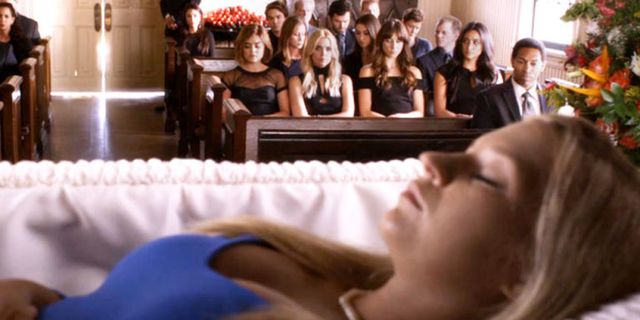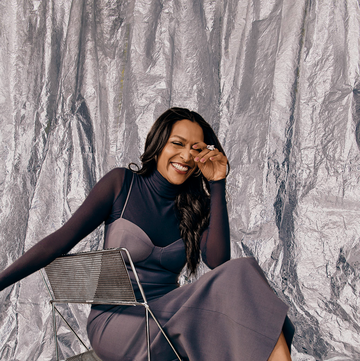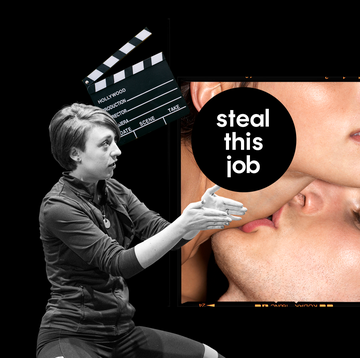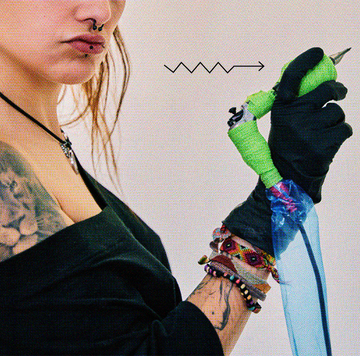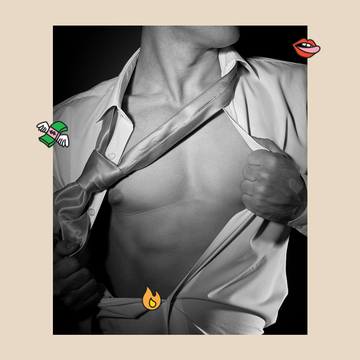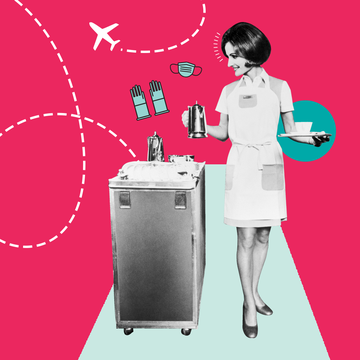1. The job is physically and emotionally draining. If we're doing two funerals in a day, I'm going to be on my feet moving flowers and carrying caskets to set everything up. You're also sometimes on call during the middle of the night — not every hospital has a refrigeration system to keep bodies overnight — which can eat into your sleep schedule. It's emotionally exhausting as well. A lot of deaths are from nursing homes and people under hospice care, but we do get calls to pick up children and victims of trauma.
2. But it isn't always morose. Even though the families we care for are in mourning, really funny situations can arise in times of death. If Dad was a funny character and died in a natural, expected way, we sometimes get his children who sit in the room and banter like, "If Dad were here, he'd think this was hilarious." Sometimes we get cases where someone has preplanned their funeral and written down some kind of funny, odd request; one time, a woman left extensive, handwritten instructions on what she wanted at her funeral but ended with "…but do what you want." Those situations aren't so bad, and it usually leads to stories about what kind of person they were in life and how, even after death, their personality still lives on.
3. Of course, there are many times when you will get really sad. If you're not comfortable being around crying people, this is not the job for you. That said, there are times when I've cried at our funerals. Some situations are just so sad and poignant that you can't be a human with emotions and not cry. You just can't break down every time. We see family members having breakdowns on a daily basis, and you have to remain professional and just hand them a tissue box. Otherwise they're like, "Why are you crying?"
4. You have to be good at science and business. Studying mortuary sciences, you learn the history of funeral services, merchandising, and management courses, as well as embalming chemistry, pathology, and restorative art courses. You can choose to focus on funeral directing or embalming, but the best people in this industry know both how to meet with clients and make arrangements for a ceremony and skillfully embalm a body.
5. Embalming is part art, part science. Embalming is basically the process of preserving and disinfecting a dead human body. You're in charge of how this person will look when people say their good-byes, so there's a lot of pressure to make them look as natural and peaceful as possible. Sometimes people die with wounds or tumors, and we can remove those if a family requests it and smooth them out with wax.
6. You won't work regular hours. I started my career at a mortuary service, where we did "removals" [picking up a dead body] and embalming. That was an on-call schedule, meaning I had to be ready for dispatch at any moment for 48 hours at a time to pick up bodies from hospitals, homes, or wherever someone died. For me, that wasn't sustainable. Now I work at a full-service funeral home where I work weekdays plus every third weekend. There has to be someone available at all times, because death — like birth — does not happen between the hours of 9 and 5.
7. You can't always understand someone else's grief, but you can validate their feelings. I'm currently working on my master's degree in thanatology — the scientific study of death, dying, grief, and bereavement — to learn more about how people mourn, but no matter how much you study, you can never be fully prepared for who's going to walk in the door. Every family is different, and everyone deals with their grief differently. On one occasion, I had a person talk to me about wanting to end her own life after the loss of her child. I listened to her, validated her feelings, and ensured her that those feelings were normal, while also adding that ending her life was not something she should do today. People will say weird, vulnerable things to you, and the best thing to do is just let them know that what they're feeling is normal, because there's no one way that you're supposed to grieve. Sometimes, I do refer people to grief support groups. I think a lot of people feel like they're they only ones going through their situation and in reality, they're not; it just seems that way because no one wants to talk about the turmoil that happens after a family member dies.
8. Sometimes, people will take their frustration out on you. For some people, grief means getting mad at everything. We have families who are mad about how long something takes, they're mad that it costs money to die, they're mad at their family, they're mad that their loved one has died. We try to be as understanding and gracious as possible, but when people get in our face, we gently remind them that we're doing the best we can to help them.
9. Finding an outlet for your emotions is essential. It's important to find a way to unwind at the end of the day. For me, that's exercise. I've been working out consistently for 11 years doing everything from strength training in gyms to distance running and marathons. If I bring work frustrations home, I take them out on the barbell. I've hit a few personal records that way! I also like listening to pop music at work, while I'm embalming or doing paperwork, and I have friends who can always make me laugh at the end of a difficult day.
10. Asking someone to pay the bill is really awkward. It's hard to talk about money when people are in so much pain. It took awhile for me to appreciate how much work goes into the operation and it's very stressful work. Once I came to that realization, it became a little easier for me to get down to the bottom line and ask, "And how are you going to be paying?"
11. Being around dead people all the time will probably change the way you feel about death. Some funeral directors say the job normalizes death for them. I'm still one of those people who would rather live forever. I don't want to die in a car accident, because I've seen people who died in car accidents, and I don't want that to be me. If it's an icy day and we're out driving, I'm a horrible person to drive with, because I'm always like, "You know how many people die from car accidents on icy roads?"
12. At the end of the day, you're helping people get through something. Our job can feel almost like a version of grief counseling. People are, in most cases, really thankful for what we've done. Even during the really difficult funerals, people will tell us, "Thank you for taking care of this and taking care of us." It can feel like a lot of pressure, but when you know you've put in good work and helped people get through a horrible time, it makes everything feel worthwhile.
Jamie Reed is a funeral director in Oklahoma.
Follow Arielle on Twitter.
